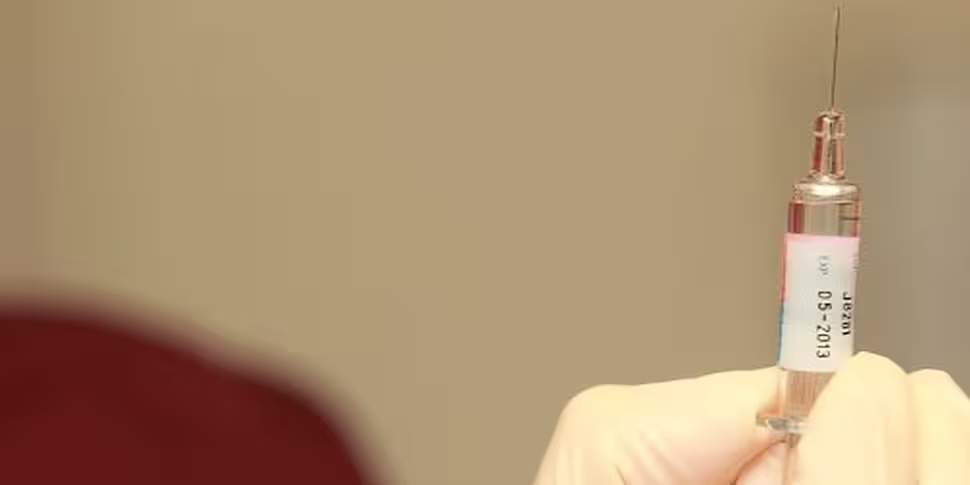The Health Service Executive (HSE) has warned complacency in relation to vaccines could cause Irish deaths as a large measles outbreak grips Europe.
It comes as this week marks European Immunisation Week.
Several European countries are reporting measles outbreaks, with over 4,000 cases and 18 measles related deaths in Romania in the past six months.
Dr Brenda Corcoran, head of the HSE National Immunisation Office, said: “Other countries with recent measles outbreaks include Italy, France, Germany, Poland and Belgium.
“An outbreak involving 40 cases occurred in Ireland as recently as 2016.”
Measles is one of the most infectious diseases. It is spread by coughing and sneezing, and by close contact with an infected individual.
HSE Chief Medical Officer Dr Tony Holohan vaccinates Health Minister Simon Harris in 2016 | Image: RollingNews.ie
“With today’s travel patterns, no person or country is beyond the reach of the measles virus”, Dr Corcoran said.
“The only protection against measles is the MMR vaccine”.
Two doses of MMR vaccine (at 12 months and 4-5 years of age) are required to be fully vaccinated.
The HSE says while uptake in Ireland has remained steady at around 92%, they want to increase rates to 95%.
“This is important for everybody but is particularly vital to protect young babies as they cannot receive the MMR vaccine until they are 12-months-old so they are vulnerable to complications, including death, if they are exposed to measles infection”, Dr Corcoran said.
Past research
The HSE have also reiterated that vaccines do not cause autism, diabetes, multiple sclerosis, allergies, asthma or attention deficit disorder.
“However, when things happen around the time vaccines are given we can think that there is a link between the two things. For example, the signs of autism usually become noticeable at about the age when children are given the MMR vaccine, but one does not cause the other,” it says.
“The majority of children are immunised, therefore children with and children without conditions such as autism, asthma or attention deficit disorder are just as likely to have received the same immunisations.”
Over the past 30 years, more than 500 million doses of MMR vaccine have been given in over 90 countries.
Extensive research into the MMR vaccine - involving thousands of children - was carried out in the UK, the USA, Sweden, and Finland.
This research showed that there is no link between MMR and autism.
A 7-year-old boy from Dublin gets vaccinated against influenza | Image: RollingNews.ie
A study looked at the vaccination records of every child born in Denmark from 1991 to 1998.
It found 82% of children born in Denmark received the MMR vaccine, and the researchers concluded that the risk of autism was the same in immunised children and in children who had not been immunised.
The General Medical Council in the UK in May 2010 decided that Dr Andrew Wakefield should be removed from the medical register after finding him guilty of serious professional misconduct and unethical behaviour in relation to research he carried out on children.
Dr Wakefield used the results of this research to falsely represent a link between the MMR vaccine and autism.
Autism Speaks, a leading autism science and advocacy organisation, has said: “Over the last two decades, extensive research has asked whether there is any link between childhood vaccinations and autism.
“The results of this research are clear: Vaccines do not cause autism. We urge that all children be fully vaccinated”.











